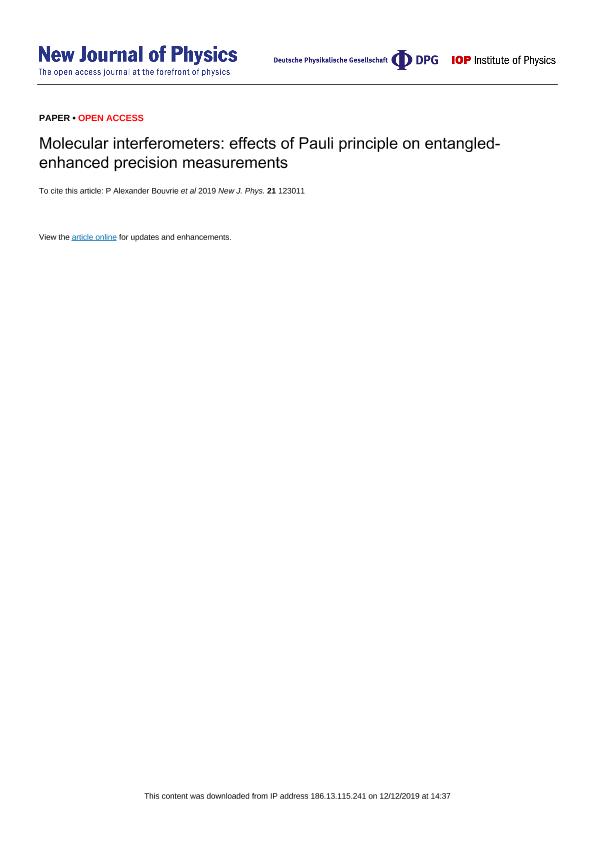Artículo
Molecular interferometers: Effects of Pauli principle on entangled-enhanced precision measurements
Fecha de publicación:
12/2019
Editorial:
IOP Publishing
Revista:
New Journal of Physics
ISSN:
1367-2630
Idioma:
Inglés
Tipo de recurso:
Artículo publicado
Clasificación temática:
Resumen
Feshbach molecules forming a Bose-Einstein condensate (BEC) behave as non-ideal bosonic particles due to their underlying fermionic structure. We study the observable consequences of the fermion exchange interactions in the interference of molecular BECs for entangled-enhanced precision measurements. Our many-body treatment of the molecular condensate is based on an ansatz of composite two-fermion bosons which accounts for all possible fermion exchange correlations present in the system. The Pauli principle acts prohibitively on the particle fluctuations during the interference process leading to a loss of precision in phase estimations. However, we find that, in the regime where molecular dissociations do not jeopardize the interference dynamics, measurements of the phase can still be performed with a precision beyond the classical limit comparable to atomic interferometers. We also show that the effects of Pauli principle increases with the noise of the particle detectors such that molecular interferometers would require more efficient detectors.
Palabras clave:
MOLECULAR BEC
,
FERMION INTERFERENCE
,
QUANTUM METROLOGY
Archivos asociados
Licencia
Identificadores
Colecciones
Articulos(IFEG)
Articulos de INST.DE FISICA ENRIQUE GAVIOLA
Articulos de INST.DE FISICA ENRIQUE GAVIOLA
Citación
Bouvrie Morales, Peter Alexander; Majtey, Ana Paula; Figueiredo, Francisco; Roditi, Itzhak; Molecular interferometers: Effects of Pauli principle on entangled-enhanced precision measurements; IOP Publishing; New Journal of Physics; 21; 12; 12-2019; 1-10
Compartir
Altmétricas




